Soft skills training workshops have become essential in today’s professional environment where technical expertise alone no longer guarantees success. These workshops are designed to develop interpersonal attributes like communication, teamwork, adaptability, and emotional intelligence that significantly influence workplace dynamics. Organizations across industries are investing in team skills workshops to cultivate leaders, build collaborative teams, and enhance employee engagement. As the demand for well-rounded professionals continues to rise, soft skills training workshops offer an effective way to bridge the gap between technical competence and personal effectiveness, fostering both individual and organizational growth.
The Growing Importance of Soft Skills in the Workplace
In an era dominated by automation and artificial intelligence, team skills workshops have gained renewed relevance. While machines can handle data and processes, human skills like critical thinking, empathy, and leadership remain irreplaceable. Employers increasingly recognize that strong soft skills contribute to better client relationships, smoother team interactions, and improved conflict resolution. As a result, soft skills training workshops are no longer optional add-ons but strategic necessities. These programs empower employees to communicate clearly, collaborate efficiently, and manage stress in fast-paced work environments, ultimately improving overall productivity and job satisfaction.
Designing Effective Soft Skills Training Workshops
Creating impactful soft skills training workshops requires thoughtful design that considers audience needs, learning styles, and organizational goals. Workshops should incorporate interactive methods such as role-playing, group discussions, simulations, and real-life case studies to ensure engagement and retention. Training should also be tailored to address specific challenges faced by participants, whether it’s improving presentation skills, handling customer interactions, or managing conflict. A well-structured curriculum with measurable learning outcomes ensures that team skills workshops not only inspire participants but also deliver tangible benefits that can be applied immediately in the workplace.
Communication Skills as the Core Focus of Soft Skills Training Workshops
Among the many competencies covered, communication skills are a central focus of most soft skills training workshops. The ability to express ideas clearly, listen actively, and adapt messaging to different audiences is critical in any professional setting. These workshops help participants master verbal and non-verbal communication, improve email etiquette, and build persuasive storytelling abilities. Strong communication fosters transparency and trust, reduces misunderstandings, and promotes collaboration across departments. By enhancing these skills, team skills workshops contribute to creating more connected, responsive, and effective workplace cultures.
Team Building and Collaboration Through Soft Skills Training Workshops
Soft skills training workshops emphasize teamwork and collaboration as essential components of workplace success. These sessions encourage participants to understand team dynamics, recognize individual strengths, and foster a spirit of cooperation. Activities in the workshops often simulate real workplace scenarios that require problem-solving, negotiation, and joint decision-making. By engaging in such exercises, employees learn to work harmoniously despite differences in background or opinion. Improved collaboration leads to faster project execution, higher innovation, and better morale, making team skills workshops a key tool in building cohesive, high-performing teams.
Emotional Intelligence Development in Soft Skills Training Workshops

Emotional intelligence (EQ) is a key area of focus in modern team skills workshops . EQ involves the ability to understand and manage one’s own emotions while also being sensitive to others’ feelings. Training sessions help participants enhance self-awareness, develop empathy, and learn emotional regulation techniques. These skills are crucial for leadership, conflict resolution, and providing constructive feedback. Soft skills training workshops that emphasize emotional intelligence enable employees to navigate workplace challenges with greater calm, confidence, and compassion, thereby contributing to a healthier, more respectful organizational culture.
Leadership Training as a Key Component of Soft Skills Workshops
Leadership development is a major element of advanced soft skills training workshops aimed at grooming future managers and executives. These programs focus on attributes such as decision-making, delegation, motivation, and vision-building. Participants engage in scenarios that mirror real leadership challenges, allowing them to practice skills in a risk-free environment. Whether preparing mid-level employees for promotion or refining the capabilities of existing leaders, team skills workshops provide the foundation for strong, empathetic, and strategic leadership. Organizations that prioritize such training often experience improved employee retention and a more proactive, innovative leadership pipeline.
Time Management and Productivity in Soft Skills Training Workshops
Time management is another critical area addressed by soft skills training workshops, especially in fast-paced industries where deadlines are tight and multitasking is common. These workshops teach participants to prioritize tasks, set realistic goals, eliminate distractions, and manage stress effectively. Techniques like the Eisenhower Matrix, Pomodoro Technique, and SMART goal setting are often introduced during these sessions. When employees manage their time efficiently, both individual and team productivity increases. By incorporating time management principles into team skills workshops , organizations can improve workflow, reduce burnout, and optimize resource utilization.
Conflict Resolution Techniques in Soft Skills Training Workshops
Conflict is inevitable in any workplace, but how it is managed can make all the difference. Soft skills training workshops equip employees with tools to handle disagreements constructively. Participants learn strategies such as active listening, assertive communication, and problem-solving to defuse tensions before they escalate. Role-playing exercises allow them to practice responding to conflict in ways that preserve relationships and promote mutual understanding. These skills are especially valuable in diverse teams where differing perspectives can lead to friction. Soft skills training workshops that focus on conflict resolution contribute to a more harmonious and productive work environment.
Measuring the Impact of Soft Skills Training Workshops
Evaluating the effectiveness of soft skills training workshops is crucial for justifying investment and refining future programs. Organizations typically use feedback forms, behavior assessments, and key performance indicators (KPIs) to assess training outcomes. Follow-up surveys and manager evaluations can determine whether skills learned in the workshop are being applied on the job. Improvement in team performance, communication quality, and employee engagement are common indicators of successful training. Regularly measuring results ensures that team skills workshops remain aligned with organizational objectives and continue to deliver meaningful returns on investment.
Adapting Soft Skills Training Workshops to a Digital Workforce
With the rise of remote and hybrid work models, soft skills training workshops have evolved to include virtual delivery formats. Online workshops use video conferencing, digital breakout rooms, and interactive tools to replicate the engagement of in-person sessions. This adaptation ensures accessibility for global teams and reduces logistical costs. Topics such as virtual communication, remote leadership, and digital collaboration have also been added to reflect current workplace realities. By embracing digital formats, team skills workshops stay relevant and inclusive, meeting the evolving needs of modern organizations and preparing employees for success in digital environments.
Conclusion
In conclusion, soft skills training workshops are vital for developing well-rounded professionals who can thrive in diverse and dynamic work environments. By focusing on communication, teamwork, emotional intelligence, leadership, and time management, these workshops equip employees with the human-centric skills needed to complement their technical expertise. The interactive and practical nature of team skills workshops ensures lasting impact and improved workplace performance. As organizations continue to prioritize talent development, investing in soft skills training will remain a strategic imperative that fosters growth, collaboration, and long-term success.
